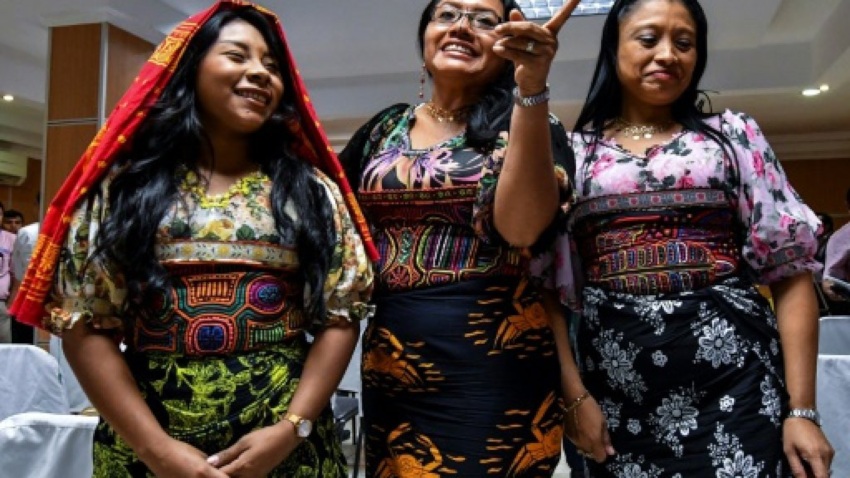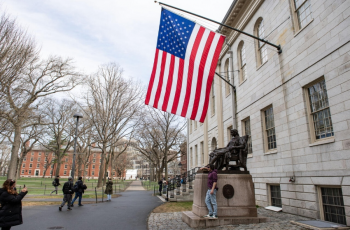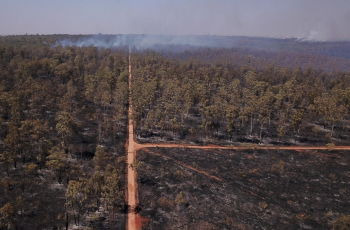Panama's Indigenous Guna Demand Nike Withdraw 'pirated' Shoe Design
Lopez said the Guna people's case against Nike "is not the only one in the world. Thousands of designs and the ancestral knowledge of indigenous people are being pirated by multinational companies."

Guna indigenous women from Panama wearing traditional Mola designs at a press conference in Panama City to raise awareness of their intellectual property case against US Sportswear giant Nike. Photo: AFP
Panama City: Panama's indigenous Guna community are demanding US sports giant Nike withdraw its latest shoe over its "pirating" of a protected traditional design.
Lawyers for the Guna say the special-edition Air Force 1 model shoe sports a traditional "mola" design without their permission, flouting their intellectual property rights.
They want the company to pull out of a planned June 6 launch of the $100 shoe.
Industry website Sneaker News reported that Nike says the design is a tribute to Puerto Rico and features a graphic representing the native Coqui frog.
However, Guna chief Belisario Lopez told a press conference in Panama City: "They must recognize that the mola that appears on the Nike shoes is from the Guna people."
Lopez said the Guna people's case against Nike "is not the only one in the world. Thousands of designs and the ancestral knowledge of indigenous people are being pirated by multinational companies."
Guna lawyer Aresio Valiente told AFP the indigenous people were seeking damages and the withdrawal of the shoe, "which is part of the spirituality of the Guna people".
"So the company has to compensate us because it was an illegal copy of our designs," Valiente said.
"We have already sent a note of protest to the Nike company, but we have not had an answer."
The Guna people live in communities in Panama and Colombia. Most Guna lives in Kuna Yala, also known as the San Blas islands, off the Caribbean coast of Panama. Environmentalists say the low-lying islands are being threatened by rising seas due to global warming.
"The mola is like a flag for the Guna. There is really a cultural identity that is articulated around the mola. It is a very strong element of identity," said Monica Martinez, professor of social anthropology at Barcelona University who has been studying the Guna for nearly two decades.
There are "more and more cases" worldwide in which indigenous people are reporting the theft of their intellectual property by designers or large companies, Martinez said.
"The interesting thing here is that there are debates in the World Intellectual Property Organization and there are demands from indigenous peoples that something has to be done. But nothing is being done."
-

‘I’m scared for my entire generation’: Young Americans reflect on Trump's first 100 days
2025-04-26 -

Foreign students give up American dream over Trump crackdown
2025-04-25 -

Don't make 'disappointing' retreat on climate, COP30 CEO urges EU
2025-04-25 -

Kashmir: India-Pakistan tensions rise after attacks on tourists
2025-04-25 -

Countries could use forests to 'mask' needed emission cuts: report
2025-04-24 -

Kashmiri students say they have been threatened in India after attack
2025-04-24 -

Indonesia food plan risks 'world's largest' deforestation
2025-04-22 -

Trump tariffs torch chances of meeting with China's Xi
2025-04-22 -

In war-torn Sudan, a school offers a second chance at education
2025-03-02 -

Nepal community fights to save sacred forests from cable cars
2025-02-21
